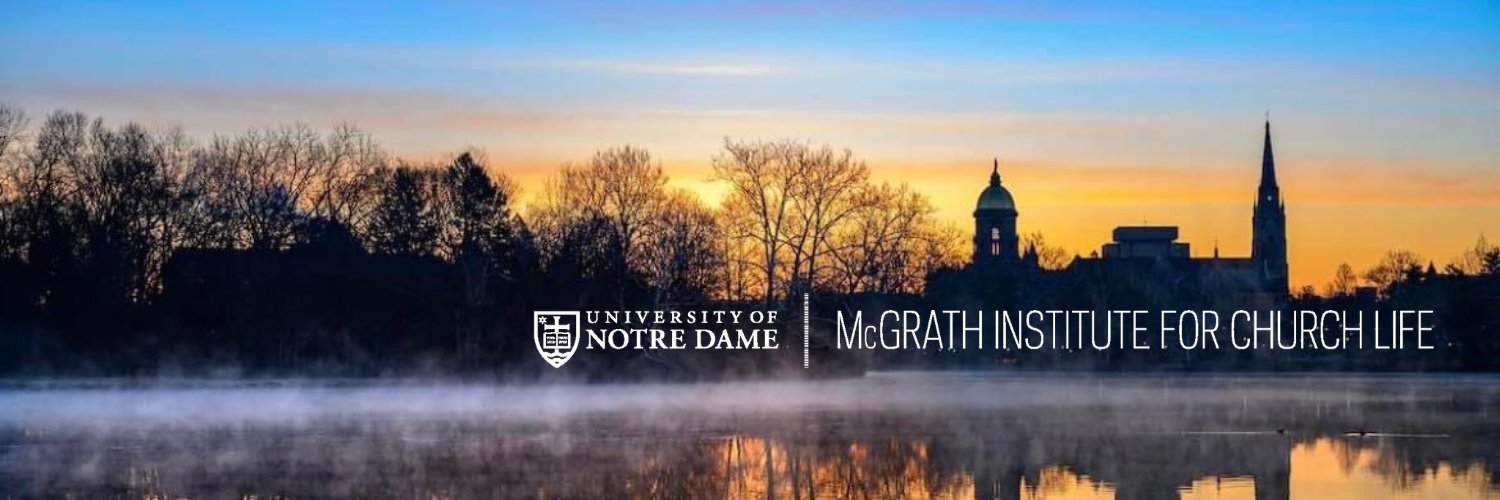
Joshua McManaway
@jrmcmanaway
Asst Prof of the Practice @McGrathND. Historian of Christianity. Academic Director, "Take a Second Look." BA Classics: ECU. MA and PhD @NotreDame.
I wrote about the lack of administrative support for the liberal arts in @nytimes. The standard story we hear is that students don't want it. But a darker reality is that even when it wins big with students and donors it loses with those in power. nytimes.com/2025/07/17/opi…
Talking religion is like drinking. Some can handle a lot and stay kind. Others take one sip and turn into a jerk. If every time you talk theology you get mean, maybe the solution’s the same as with booze: stop. It might just not be for you.
This is a really excellent book with essays covering so many interesting topics in Augustine scholarship:

A careful reading of Heroes of the Fourth Turning shows the dangers of a certain kind of Catholic ethos that substitutes theological constructs for human beings, and so misses how these same constructs can become twisted. --Roberto J. De La Noval hubs.la/Q03xYQsF0
One may even propose that the short text about the parallel between Mary and Eve in his Dialogue with Trypho is the most significant patristic thought in the field, from which all subsequent Mariology was suddenly stirred into motion. - Farkasfalvy, The Marian Mystery, 66.
The truth that God died was one of the best arguments in antiquity against Nestorianism. God trampled down death by death.
Periodic reminder that this is the level of comprehension of an average Christian 🧠. What else would you expect from these people anyway smh
Before tonight, I had never read Cassiodorus' Institutiones Divinarum et Saecularium Litterarum. What an interesting book!
Interesting question. Can any one of my learned followers contribute?
Maybe some historians (and philosophers) contribute: I’m discussing with a colleague (based on my book chapter) when knowledge began to be presumed as progressing linearly. One answer is the late 19th century, another says post-1750s. But what about the 17th century?
One of the best books I read on early Protestant views of Mary is Beth Kreitzer's "Reforming Mary." I'd recommend those in the Mary discourse give it a read. amazon.com/Reforming-Mary…

Why did God enter into time and place if time and place are irrelevant? Maybe He should have just given us a book of Judaean aphorisms and been done with it.
American Protestants don’t need to turn to “ancient communities” for their faith. They only need the Bible. That is enough. It’s all there is, in fact. All the other garbage by cosplaying latter-day Fr. Coughlins and Third World accounts is an anti-American, sectarian op.
We're hiring! The McGrath Institute is hiring for a Program Director, STEP. If you're passionate about online learning, a creative problem-solver, and collaborative, this job's for you. Come join us! For more information on the position, please visit the link below.
Update: On another lark, I decided to take the next level's exam 24 hours after I got my Technician license and passed. My grandfather was very into radios of all kinds when I was growing up and I wonder if I'm unearthing some genetic attraction to weird tech stuff.
While on vacation with my wife's family last week, I decided for no reason at all that I would take the test to get my Technician license for Ham radio. Happy to report that I passed the exam and I'm FCC official. I have no plans for it -- it just seemed interesting!
Reposting this for my students (or any others who follow me).
As much as people say this, I just don't believe it. (Maybe I'm naive.) If you're an undergraduate, could you please tell me (1) whether you regularly read books, and (2) your impression of how common that is among your peers.
